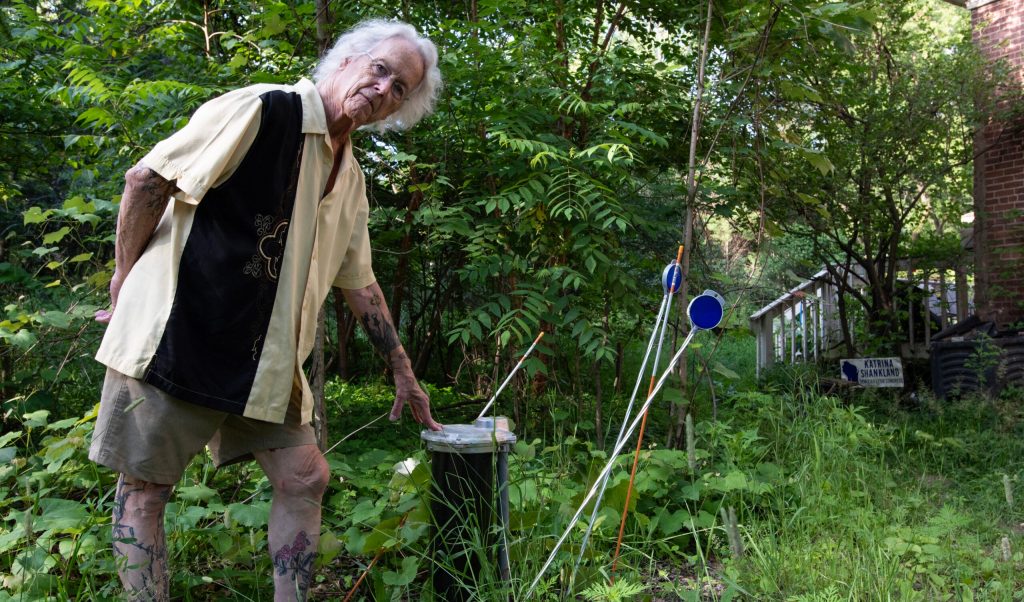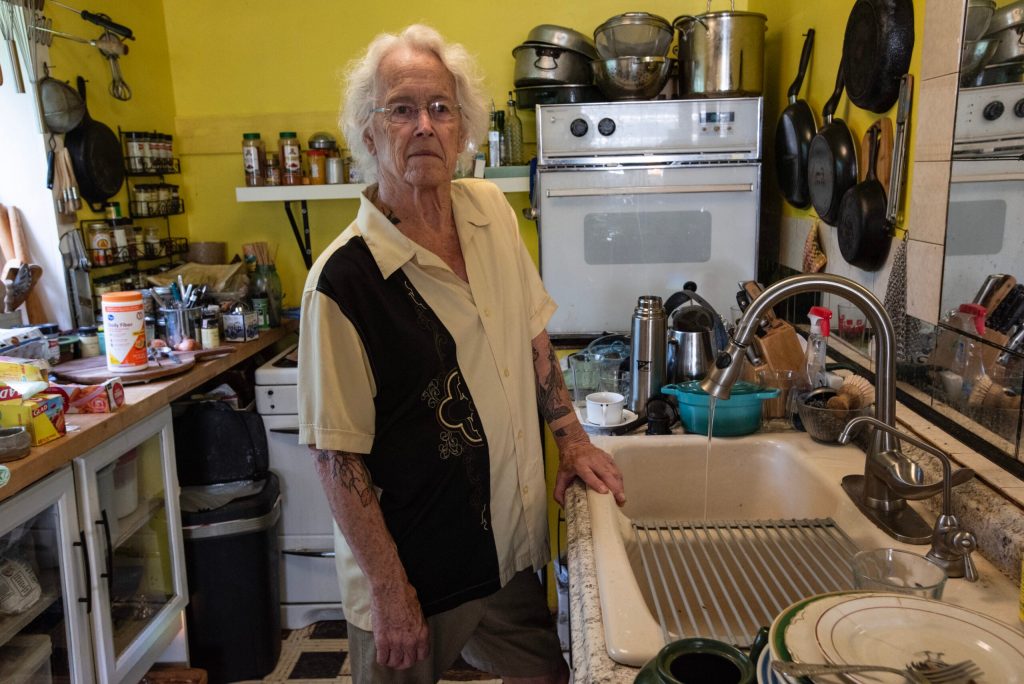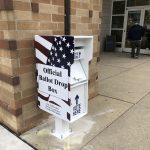Despite Attempts, Report Finds Wisconsin Isn’t Doing Enough To Curtail Nitrate Pollution
Farms likely overapplied 16 million pounds of nitrogen in fertilizer in 2022, says new report.

Mark Brueggeman, a Nelsonville resident, said he continues to use a reverse osmosis system to treat for nitrate contamination despite drilling a new well. Photo courtesy of Clean Wisconsin
Mark Brueggeman waited six years before his contaminated well could be replaced.
The village of Nelsonville resident first discovered high nitrate levels in his well in 2018. Testing showed levels as high as 23 parts per million — more than double the federal health standard of 10 parts per million in drinking water.
“I realized I could not let her get her own water because there was no way she was going to go to the single spigot in the kitchen that had (potable) water,” Brueggeman said.
Since then, he’s been paying a monthly fee for safe water. In 2022, he secured a state grant to install a new well last year that cost $20,000. Nitrate levels have fallen, but he’s still treating his water.
“I don’t trust the new well to maintain clean water because none of the farming practices around here have changed,” Brueggeman said.
He believes contamination in his well came from agriculture, which has been linked to 90 percent of nitrate contamination in Wisconsin’s groundwater. Most recent data shows about 7 percent of the state’s 800,000 private wells have exceeded the nitrate health standard over the past two decades. Although, rates are higher than 20 percent in some areas.

Mark Brueggeman of Nelsonville stands in front of the kitchen sink where he had a reverse osmosis system installed in 2018 to address nitrate contamination. Photo courtesy of Clean Wisconsin
A new report from environmental groups Alliance for the Great Lakes and Clean Wisconsin estimates that farms likely over-applied more than 16 million pounds of nitrogen in fertilizer on crops in 2022, contributing to nitrate contamination. The report aims to increase awareness and drive solutions, said Sara Walling, a report author and water and agriculture program director for Clean Wisconsin.
Nitrates are the state’s most widespread contaminant and have been associated with blue baby syndrome, thyroid disease and colon cancer. The report states communities like Chippewa Falls, Plover, Janesville and Trempealeau have already spent $45 million to address nitrate contamination. A 2019 analysis estimated it would cost $446 million to replace nitrate-contaminated wells statewide.
The report suggests expanding the state’s well compensation grant program to aid more private well owners, along with a recommendation that nitrogen fertilizer tonnage fees be increased to discourage overapplication. Groups also recommend the Wisconsin Department of Natural Resources and Department of Agriculture, Trade and Consumer Protection move swiftly to set groundwater standards and other protections.
Rep. Todd Novak, R-Dodgeville, chaired a water quality task force in 2019 that produced more than a dozen bills. Novak said he views the report as setting the stage for agencies to craft new rules after a Wisconsin Supreme Court ruling found a joint legislative committee overstepped its authority when it indefinitely blocked agency regulations.
“We do need to go back and do more with nitrates,” Novak said. “But putting more fees and everything on farmers, and just saying farmers need to do X, Y and Z, isn’t the answer either. You need to work with farmers.”
Beyond expanding the program, the report suggests the Wisconsin Department of Health Services lower the groundwater standard for nitrates. DHS spokesperson Jennifer Miller said the latest report from the Wisconsin Groundwater Coordinating Council doesn’t recommend lowering the standard, but rather expanding the state’s well compensation grant program.
“The Wisconsin Department of Health Services continues to follow the science related to health concerns around nitrates and we work closely with DNR and DATCP to protect the public from groundwater contamination,” Miller said.
The report also recommends that the DNR set standards for surface water and groundwater in areas vulnerable to groundwater contamination, the last of which were previously abandoned due to time and cost constraints under the law. A DNR spokesperson said the agency is reviewing the report.
“Protecting Wisconsin’s surface water and groundwater is essential to the agency’s mission, and we remain committed to ensuring our state’s waters are safe and clean today and into the future,” the agency spokesperson said.
The report also recommends regulators improve enforcement of nutrient management plans, create a statewide manure hauler registration system, set a standard process for requiring groundwater monitoring of large farms, and track and report nitrate-related costs for public water utilities.
Tim Trotter, CEO of the Dairy Business Association, said the report lacks sound research and makes unsubstantiated conclusions. In a statement, he said its members have demonstrated significant improvements in water quality through farmer-led conservation initiatives.
Current policies and programs in Wisconsin fail to curb nitrate pollution, report says was originally published by Wisconsin Public Radio.
If you think stories like this are important, become a member of Urban Milwaukee and help support real, independent journalism. Plus you get some cool added benefits.





















